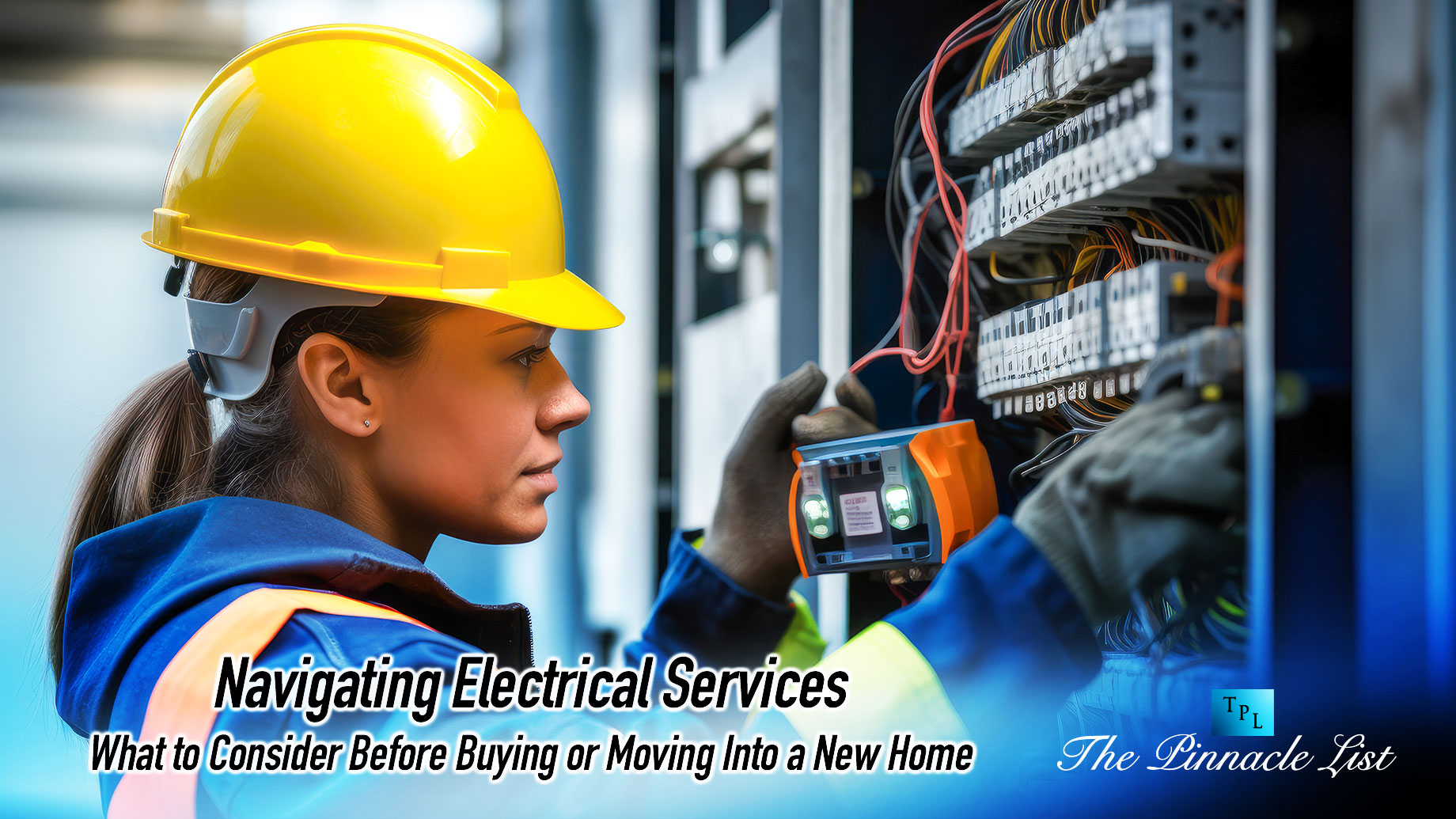
Buying or moving into a new home is an exciting journey, but it also comes with a myriad of considerations to ensure that the home is safe, efficient, and suitable for your needs. One of the critical aspects that should never be overlooked is the home’s electrical system.
It’s essential to understand and evaluate the state of electrical services in a new home, as this can affect not only your daily comfort but also your safety and financial outlay in the long run. Here’s a detailed guide on what to consider regarding electrical services when purchasing or moving into a new home to help you avoid key mistakes homeowners make with their electrical systems.
1. Compliance with Electrical Codes and Safety Standards
- National Electrical Code (NEC) Compliance: Check if the home’s electrical system adheres to the NEC, which sets standards for safe electrical design, installation, and inspection.
- Local Codes and Regulations: Be aware of any additional local electrical codes that might apply. These can sometimes be more stringent than national standards.
2. Condition and Age of Electrical System
- Age of the Wiring: Older homes may have outdated wiring systems like knob-and-tube or aluminum wiring, which can be fire hazards.
- Quality of Wiring: Check for any signs of frayed or exposed wiring, which indicates a need for urgent repairs or replacement.
3. Electrical Panel Inspection
- Capacity and Condition: Ensure that the electrical panel is not outdated and has enough capacity for your current and future electrical needs.
- Safety Concerns: Look out for any signs of rust, overheating, or old fuse boxes, which are indicators of potential safety issues.
4. Outlet and Switch Functionality
- Sufficient and Conveniently Placed Outlets: Ensure there are enough outlets to meet your needs and they are in convenient locations.
- GFCIs in Wet Areas: Ground Fault Circuit Interrupters should be present in bathrooms, kitchens, and other wet areas to prevent shock hazards.
- Switches and Outlets Condition: Test all switches and outlets for functionality. Loose-fitting or non-functional outlets need attention.
5. Energy Efficiency and Sustainability
- Energy-Efficient Lighting: Check if the home is equipped with LED or energy-saving lighting fixtures.
- High-Efficiency Appliances: If the home comes with appliances, ensure they are energy-efficient to reduce electricity costs.
6. Home Inspection and Electrical Audit
- Professional Home Inspection: Before finalizing the purchase, have a professional home inspection that includes a thorough check of the electrical system.
- Electrical Audit: Consider a detailed electrical audit by a licensed electrician to assess the safety and efficiency of the system.
7. Future Expansion and Upgrades
- Expansion Potential: If you plan to add more rooms or appliances, ensure the electrical system can handle these future expansions.
- Smart Home Capabilities: Check if the electrical system can support smart home technologies if you plan to install them.
8. Security and Outdoor Electrical Systems
- Outdoor Lighting and Power: Ensure there is adequate outdoor lighting and conveniently located outdoor power outlets.
- Pre-Wiring for Security Systems: If you’re considering a security system, check if the house is pre-wired for this purpose.
9. Specialty Electrical Needs
- Home Office or Workshop: For homes with designated office or workshop spaces, ensure there are sufficient power outlets and dedicated circuits if needed.
- Electric Vehicle Charging: If you own or plan to buy an electric vehicle, consider the availability of, or the possibility to install, an EV charging station.
10. Cost Implications and Insurance
- Potential Upgrades and Repairs Cost: Assess the cost implications for any necessary electrical upgrades or repairs.
- Insurance Considerations: Some outdated electrical systems may impact your ability to obtain or afford home insurance. Check with insurers regarding any specific electrical requirements.
Pre-Purchase Electrical Audit Checklist
- Inspect Electrical Panel:
- Check for the age and brand of the panel.
- Verify the capacity is sufficient for current and future needs.
- Look for signs of rust, overheating, or damage.
- Examine Wiring System:
- Identify the type of wiring (copper, aluminum, knob-and-tube).
- Check for any visible damage, outdated wiring, or DIY fixes.
- Safety Device Check:
- Ensure the presence of Ground Fault Circuit Interrupters (GFCIs) in bathrooms, kitchens, and other wet areas.
- Check for the proper installation and functioning of circuit breakers.
- Evaluate Outlets and Switches:
- Test all outlets and switches for functionality.
- Look for any that are loose, discolored, or make crackling noises.
- Lighting and Fixture Assessment:
- Examine light fixtures and bulbs for energy efficiency.
- Check for proper installation and any signs of damage or overheating.
- Inspect Outdoor Electrical Systems:
- Review outdoor lighting, outlets, and any exterior power sources.
- Evaluate the condition of any outdoor electrical panels or subpanels.
- Assess Home’s Electrical Load:
- Estimate the load requirement based on appliances and HVAC system.
- Check if the current system can handle additional load for future expansion.
- Check for Smart Home Readiness:
- Determine if the electrical system is compatible with smart home devices.
- Examine the infrastructure for smart thermostats, security systems, etc.
- Professional Inspection Confirmation:
- Ensure a licensed electrician or home inspector has validated the system.
- Obtain a detailed report of the electrical system’s condition.
- Review of Previous Electrical Work:
- Ask for records of any past electrical work or upgrades.
- Ensure all modifications met local codes and permits were obtained.
Conclusion
When buying or moving into a new home, paying attention to the electrical system is critical. It’s not just about convenience and functionality; it’s a matter of safety and financial prudence. By thoroughly evaluating the electrical system, you can avoid unexpected costs, ensure your family’s safety, and plan for future upgrades.
Remember, electrical issues are not always apparent, so professional inspections and assessments are vital. Addressing electrical service considerations upfront will pave the way for a smooth and enjoyable home ownership experience, letting you enjoy your new home with peace of mind and security.